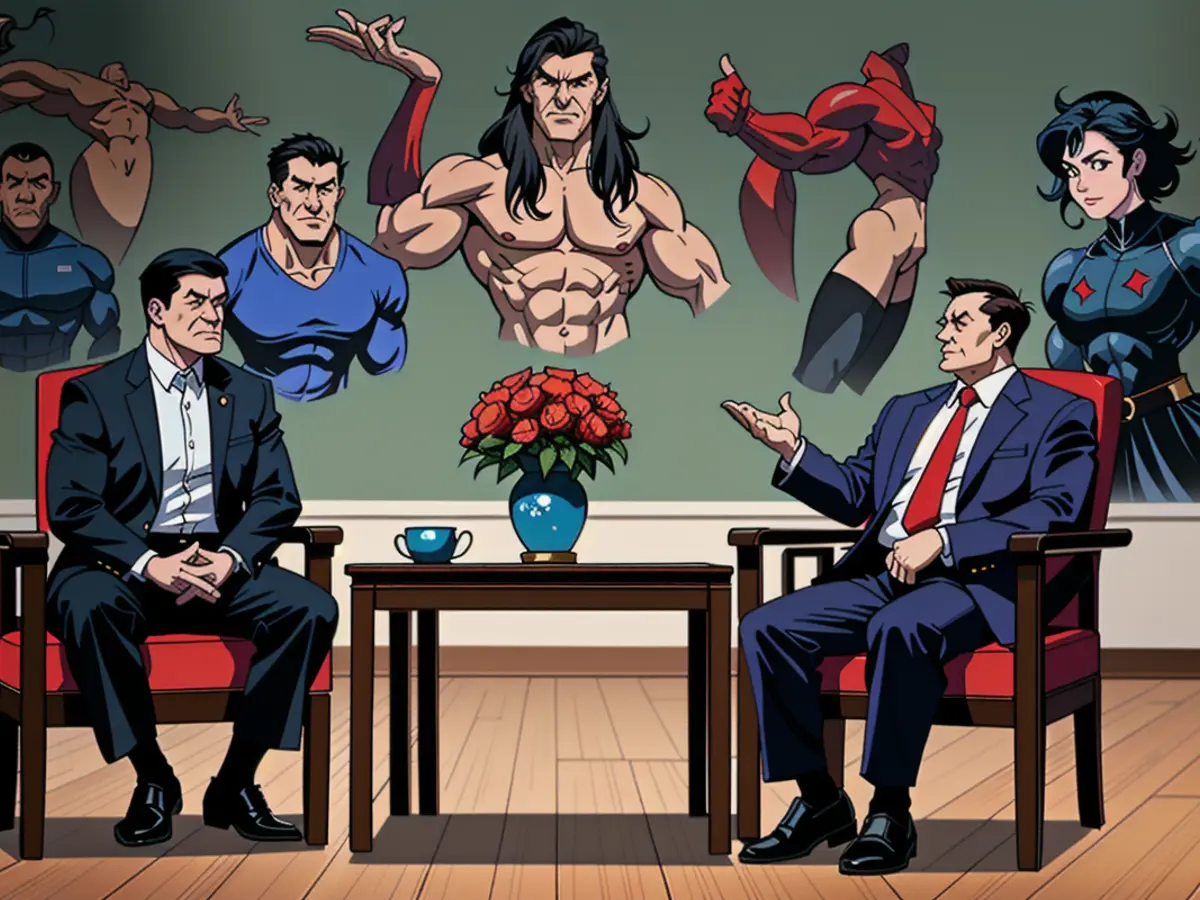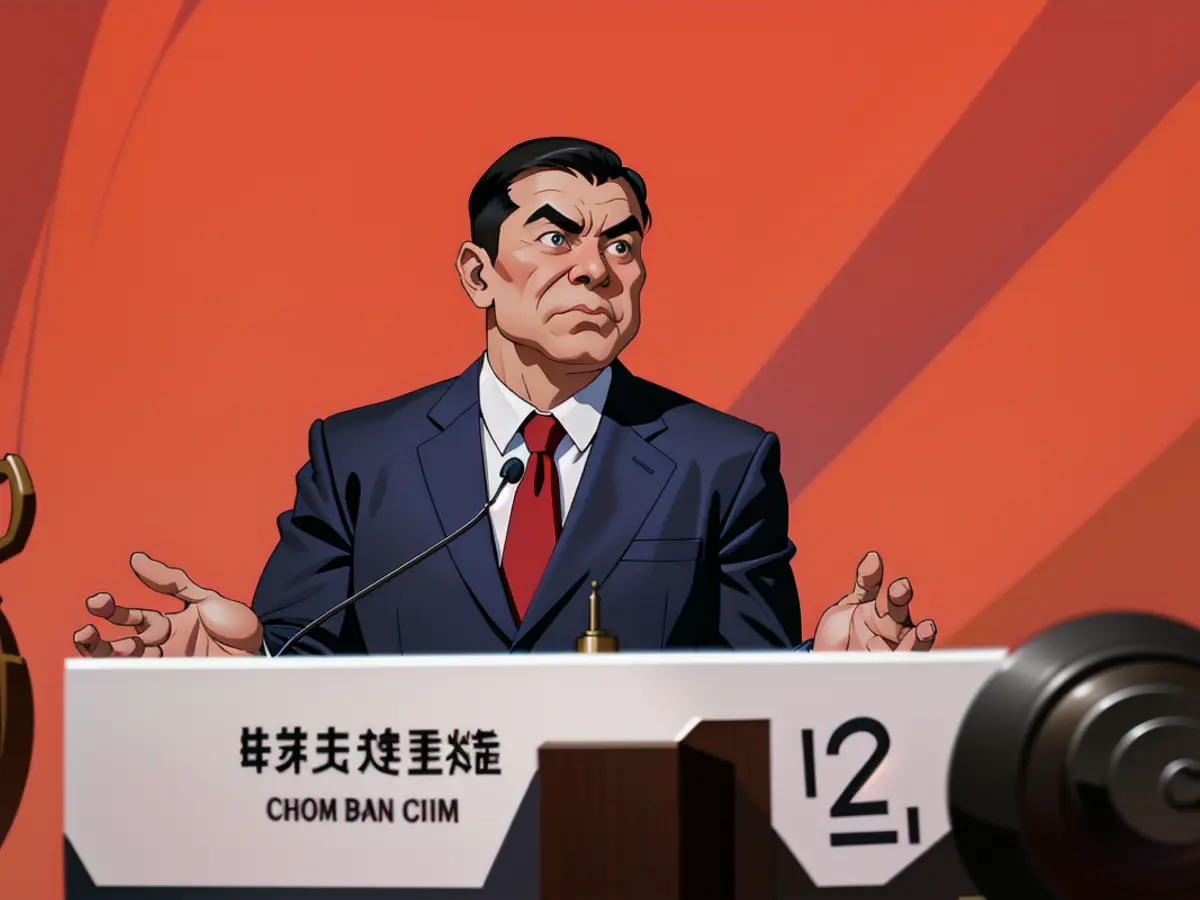Global leaders urge global enterprises to combat protectionism as top American business figures convene in Beijing.
In the heart of Beijing, Chinese Premier Li Qiang addressed a horde of global business leaders, urging them not to succumb to protectionism and to bolster globalization. The gathering, which included heavyweights like Apple's Tim Cook, FedEx's Raj Subramaniam, and Pfizer's Albert Bourla, comes at a time when trade pressures between the US and China are reaching a boiling point.
Li cautioned that decoupled supply chains would exacerbate crises, while promising increased market access for foreign investors. He emphasized that a return to the "law of the jungle" would be detrimental to history and humanity. Li insisted China had prepared for potential shocks, mainly external ones, with proper policies to ensure the economy stays afloat.
The stakes are high for Li's message as China aims to exude confidence and reverse plummeting foreign investment in its slowing economy. With the approaching impact of President Trump's tariffs looming, this gathering serves as a crucial platform for US-China diplomacy in uncharted waters.
Li even had a chat with US Senator Steve Daines, a Trump ally, on the sidelines of the meeting, described as a "first step" towards a potential meeting between Trump and Chinese leader Xi Jinping. US executives from major firms like Qualcomm, Pfizer, FedEx, and Boeing also participated, with Li emphasizing the shared interests and cooperation potential between the US and China.
Trump tentatively signaled a possible deal with China and Xi, as America's top trade official and Chinese counterparts might discuss next week. Since taking office, Trump has imposed 20% additional tariffs on all Chinese imports, escalating the existing levies on hundreds of billions of goods. China countered with its own duties on US imports, particularly focusing on agricultural and energy products, and announced new export controls on raw materials.

The drive to redefine US-China trade relationships and the anticipated trade shocks were central topics for many multinational executives and observers during the forum. Representatives from companies like Inter IKEA Group and Boston Consulting Group expressed their belief in an open, rule-based trade system that fosters scale and sustainability, emphasizing the need for businesses to become more flexible and technologically adaptable.
Despite concerns about doing business in China due to heightened geopolitical tensions, Chinese officials continue to position China as a responsible global player and a champion of globalization. Foreign firms, on the other hand, are growing wary of Chinese authorities detaining or questioning their employees amid increased national security focus. However, China's global outlook remains geared towards collaboration, diversification, and investment.
Enrichment Insights:
- China is actively working with the European Union to counter protectionism and strengthen trade ties.
- China is focusing on mitigating the impact of trade tensions by investing in domestic consumption and diversifying trade partners.
- The Belt and Road Initiative (BRI) represents China's efforts to boost global economic integration through infrastructure investment.
- China is positioning itself as a responsible world power and a supporter of globalization, even amid growing concerns from foreign firms.
- In the wake of mounting US-China trade tensions, Chinese Premier Li Qiang, during a gathering in Beijing with global leaders, warned against decoupling and emphasized the detrimental effects of a return to the "law of the jungle."
- Amidst US tariffs, Chinese Premier Li engaged in discussions with US Senator Steve Daines, a Trump ally, hoping it would pave the way for a potential meeting between President Trump and Chinese leader Xi Jinping.
- While concerns regarding Chinese authorities detaining or questioning their employees plague foreign firms, China continues to assert itself as a champion of globalization, working with the European Union to counter protectionism and investing in the Belt and Road Initiative (BRI) for global economic integration.









